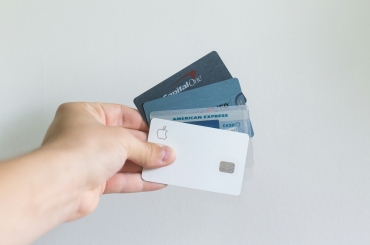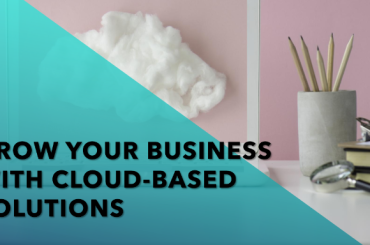This blog post may contain references to products or services from one or more of our advertisers or partners. We may receive compensation when you click on links to those products or services.
Small businesses are really important for our economy. It’s estimated that small businesses create more than 1.5 million new jobs every year. That’s why it’s important to ensure you’re building your business credit the right way from the start.
If you’re a first-time business owner, you may need help figuring out where to start when it comes to building your business credit. This guide will tell you everything you need to know about personal and business credit and how to build a strong credit profile for your business.
Understanding Your Credit
Your personal credit history is important, even if you’re starting a business. Lenders will often look at your credit score when considering you for a loan or line of credit. A strong personal credit score shows that you’re a responsible borrower and are more likely to repay your debts.
The difference between a personal credit score and a business credit score is that your credit score is based on your credit history. In contrast, a business credit score is based solely on your business’s credit history.
What’s more, your business credit score is not a factor in your personal credit score. So, if you’re worried about how building your business credit will affect your credit score, don’t be. Your business credit score is completely separate from your personal credit score.
How’s Your Credit Determined?
So, you know that your personal credit score is based on your personal credit history. But what exactly is included in your personal credit history? Here are the five main factors that make up your credit score:
- Payment History: Every person has a different credit score because everyone has a different payment history. Your payment history includes whether you’ve made your credit card payments on time, how much debt you have, and whether you’ve declared bankruptcy.
- Owned Amount: The debt you have is also factored into your credit score. If you have a lot of debt, that can negatively impact your credit score. Often, your debt is divided into two categories: revolving debt and installment debt. Revolving debt, like credit cards, can be paid off over time. Installment debt, like student loans, must be paid off in a set period of time.
- Credit History Length: The length of your credit history is also factored into your credit score. The longer you’ve been using credit, the better. This is because lenders want to see a history of responsible borrowing before they lend you money.
- Credit Mix: The mix of different types of credit you have is also considered when determining your credit score. For example, having both revolving debt (like credit cards) and installment debt (like a mortgage) can positively impact your credit score.
- Credit inquiry. Too many new credit inquiries in a short period can negatively impact your credit score.
Now that you know what’s included in your credit score, you may be wondering what a good credit score looks like.
What Does a Good Credit Score Look Like?
In the United States, it’s estimated that more than 48 million citizens have a bad credit score. Interestingly, many people don’t even know they have a bad credit score. A good credit score in the US is anything above 700. If your credit score is below 700, that’s considered bad credit.
However, it’s important to note that there are different types of bad credit. For example, a score of 580 is considered very bad credit. On the other hand, a score of 660 is considered bad credit. Now that you know what a good credit score looks like, let’s look at business credit.
What You Need to Know About Business Credit
Just like your personal credit score, your business credit score is based on your business’s credit history. However, there are a few key differences you should be aware of.
First, your business credit score is not a factor in your credit score. This means that building your business credit will not impact your credit score.
Second, your business credit score is based on different factors than your personal credit score. The main factor in your business credit score is your payment history. This includes whether you’ve made your loan payments on time, how much debt you have, and whether you’ve declared bankruptcy.
Other factors that go into your business credit score include the length of your credit history, the type of credit you have, and the number of new credit inquiries you have.
Now that you know what goes into your business credit score let’s look at how you can improve your business credit profile.
How to Improve Your Business Credit Profile
You can do a few key things to improve your business credit profile. Here are a few tips:
Look for Errors
First, you should look for errors. If there are any inaccuracies on your business credit report, that can negatively impact your score. You can get a free copy of your business credit report from the three major business credit bureaus: Experian, Equifax, and TransUnion.
Use Business Credit for Business Only
Next, you should use business credit for business only. This means that you should only use business credit cards for business expenses. Personal credit cards should be used for personal expenses only.
Establish Business Credit Accounts
Establishing business credit accounts is another great way to improve your business credit profile. You can do this by opening a business credit card or taking out a small business loan.
Ensure Vendors Report Your Credit History
Another important thing you can do is ensure that your vendors report your credit history to the major business credit bureaus. That includes things like your payment history and credit utilization.
Meet Credit Obligations On Time
Finally, you should always meet your credit obligations on time. This includes making your loan payments on time and paying your bills on time.
Closing Thoughts
When starting a business, it’s important to understand your business credit. By following the tips above, you can improve your business credit profile and get access to the funding you need to grow your business.
Remember, personal credit and business credit are two different things. Your personal credit score is not a factor in your business credit score. Also, the factors that go into your business credit score differ from those that go into your personal credit score.
By taking the time to understand and improve your business credit, you can access the funding you need to grow your business.
Become an Insider
Editorial Disclaimer: The editorial content on this page is not provided by any of the companies mentioned and has not been endorsed by any of these entities. Opinions expressed here are author's alone
The content of this website is for informational purposes only and does not represent investment advice, or an offer or solicitation to buy or sell any security, investment, or product. Investors are encouraged to do their own due diligence, and, if necessary, consult professional advising before making any investment decisions. Investing involves a high degree of risk, and financial losses may occur.




















